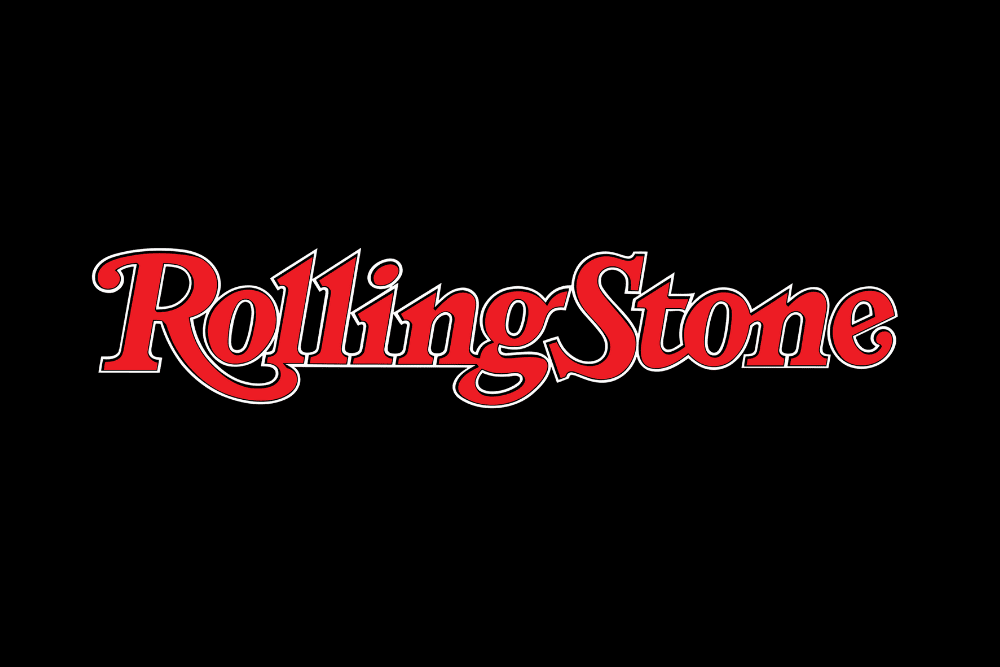Red Flags That Could Save Your Loved One’s Life
When your family member finally agrees to seek help for addiction, choosing the wrong detox facility could turn hope into tragedy. Every year, preventable deaths occur in detox clinics across California due to inadequate medical supervision, untrained staff, and facilities that prioritize profits over patient safety. The devastating truth is that many families don’t recognize the warning signs of a dangerous facility until it’s too late. As you search for a safe detox program in Los Angeles, understanding which red flags signal potential negligence can literally mean the difference between recovery and wrongful death. The California Department of Health Care Services updated their certification requirements in February 2025, yet many facilities still operate with dangerous gaps in care that put vulnerable patients at risk.
💡 Pro Tip: Before touring any facility, verify their current DHCS certification status online and check for any recent complaints or violations – this simple step takes minutes but could reveal critical safety concerns.
When it comes to protecting your loved ones from inadequate detox facilities, every moment counts. MSD Lawyers is here to ensure no stone is left unturned. If you spot warning signs or need guidance, reach out to us at 213-401-0823 or contact us today and take a proactive step towards safeguarding their future.
Understanding California’s Detox Facility Standards and Your Legal Protections
California law mandates that detoxification facilities maintain specific safety standards to protect patients during the vulnerable withdrawal process. The Department of Health Care Services has sole authority to certify and monitor all outpatient alcohol or drug programs, including detoxification services, with updated requirements effective February 2025. These regulations require facilities to adopt American Society of Addiction Medicine (ASAM) treatment criteria as the minimum standard of care. When facilities fail to meet these standards and a patient dies or suffers serious harm, families may have grounds for a wrongful death or negligence lawsuit. A detox clinic death lawyer in Los Angeles can help families understand how violations of state regulations strengthen their legal claims and ensure accountability for preventable tragedies.
💡 Pro Tip: Request a written copy of the facility’s ASAM level certification and ask specifically how they implement these standards – legitimate facilities will readily provide this documentation.
Critical Warning Signs to Evaluate Before Admission
Recognizing dangerous conditions requires systematic evaluation of multiple factors during your facility search. Families who have lost loved ones to detox clinic negligence often report seeing these same warning signs but not understanding their significance until consulting with a detox clinic death lawyer in Los Angeles. The following red flags should prompt immediate concern and further investigation before trusting any facility with your loved one’s care.
- No 24-hour medical supervision: Treatment guidelines require medical consultation be readily available 24 hours daily in residential detoxification programs
- Unlicensed or uncertified counselors: California requires specific certifications through DHCS-approved organizations with experience hours completed in licensed facilities
- Missing tuberculosis screening: All detoxification patients should receive tuberculin testing per standard infectious disease protocols
- No nutritional evaluation program: Core detoxification components must include nutritional assessment since deficiencies can interfere with or prolong the process
- Lack of domestic violence screening: Staff should know signs of domestic violence and follow safety procedures, as substance use increases intimate partner violence risk
- Failure to address psychosocial issues: Research indicates addressing these concerns significantly increases likelihood of safe detoxification
💡 Pro Tip: Visit the facility unannounced during different times of day to observe actual staffing levels and patient care – scheduled tours often present an unrealistic picture of daily operations.
Taking Action When Warning Signs Point to Negligence
When families identify serious safety concerns at a detox facility, immediate action can prevent tragedy. You can file complaints against DHCS-certified facilities through the DHCS SUDCD website, and facilities must report counselor misconduct within 24 hours of discovery. If your loved one has already suffered harm or death due to facility negligence, MSD Lawyers understands the complex interplay between DHCS SUD program certification requirements and civil liability. Our detox clinic death lawyer in Los Angeles team investigates whether facilities maintained proper licensure, followed mandated safety protocols, and provided the level of care required by California law. We work with medical experts to demonstrate how specific violations directly caused preventable deaths or injuries.
💡 Pro Tip: Document everything with photos, save all communications, and request copies of medical records immediately – this evidence becomes crucial if legal action becomes necessary.
Staffing Red Flags That Signal Dangerous Conditions
Inadequate staffing remains one of the most lethal problems in detox facilities, yet many families don’t know what proper staffing looks like. California law requires detoxification facilities to provide medically supervised environments with qualified staff, including licensed physicians and nurses to manage withdrawal symptoms safely. When evaluating a facility, families working with a detox clinic death lawyer in Los Angeles often discover that fatal incidents occurred during predictable staffing shortages – overnight shifts, weekends, and holidays. Joint Commission Behavioral Health Accreditation standards provide additional staffing benchmarks that reputable facilities should meet or exceed.
Questions to Ask About Medical Coverage
Directly ask who provides medical coverage during nights and weekends, how quickly a physician can respond to emergencies, and what happens if multiple patients experience simultaneous medical crises. Facilities that hedge on these answers or claim their nurses can handle everything without physician backup are displaying dangerous warning signs. The primary goal of detoxification staff should be building therapeutic alliance while ensuring medical safety, which requires adequate professional coverage at all times.
💡 Pro Tip: Request the facility’s staff-to-patient ratios for each shift in writing and compare them to Joint Commission standards – facilities below these minimums pose serious safety risks.
Financial Warning Signs and Insurance Red Flags
Predatory billing practices often correlate with substandard care, making financial transparency a crucial safety indicator. While legitimate behavioral health care organizations have annual fees starting at $1,990 per year with additional on-site survey fees, patients and families should never face surprise charges or pressure to sign financial agreements before reviewing care standards. SAMHSA’s National Helpline can refer families to facilities that charge on sliding fee scales or accept Medicare and Medicaid. Facilities demanding large upfront payments, refusing to provide detailed cost breakdowns, or pressuring immediate admission without insurance verification often prioritize profits over patient safety.
Insurance Verification and Hidden Costs
Legitimate facilities will verify insurance coverage before admission and clearly explain any out-of-pocket costs. They should also discuss what happens if insurance stops covering treatment and never threaten to discharge patients abruptly for payment issues. A detox clinic death lawyer in Los Angeles frequently finds that facilities engaging in insurance fraud also cut corners on patient care, creating dangerous conditions that lead to preventable deaths.
💡 Pro Tip: Never sign blanket authorization forms allowing facilities to bill your insurance indefinitely – legitimate programs provide specific treatment timelines and cost estimates.
Recognizing Inadequate Emergency Protocols
The absence of clear emergency protocols represents one of the most dangerous warning signs families can encounter. Every year, a detox clinic death lawyer in Los Angeles investigates cases where patients died because facilities lacked basic emergency response procedures or staff failed to recognize life-threatening withdrawal complications. California requires facilities to maintain transfer agreements with nearby hospitals and have clear protocols for medical emergencies, yet many operate without these essential safeguards.
Testing Emergency Preparedness
Ask specific questions about their emergency protocols: How quickly can patients be transferred to a hospital? What medical equipment is on-site? How are staff trained to recognize withdrawal complications? Facilities should readily provide this information and demonstrate their emergency equipment. Those who claim they “rarely have emergencies” or seem unprepared for these questions pose unacceptable risks to patient safety.
💡 Pro Tip: Ask to see their written emergency protocols and most recent emergency drill documentation – facilities without these documents are violating basic safety standards.
Frequently Asked Questions
Understanding Facility Certifications and Safety Standards
Families often feel overwhelmed by certification requirements and struggle to understand what credentials actually matter for patient safety. These questions address the most common concerns about facility standards and red flags.
💡 Pro Tip: Create a checklist of required certifications and safety features before touring facilities – this prevents emotional decisions that could endanger your loved one.
Legal Rights and Complaint Processes
Knowing your rights and how to report violations can prevent tragedies and protect other families from dangerous facilities. Understanding the complaint process empowers families to take action when they observe warning signs.
💡 Pro Tip: Keep detailed notes of all interactions with facilities, including dates, times, and names of staff members – this documentation becomes vital if complaints or legal action become necessary.
1. What’s the difference between DHCS certification and Joint Commission accreditation for detox facilities?
DHCS certification is legally required for all detox facilities in California and ensures minimum safety standards, while Joint Commission accreditation represents additional voluntary standards recognized in all 50 states. Facilities with both credentials typically maintain higher safety standards, though DHCS certification alone is the legal minimum. Always verify current DHCS certification status, as this is non-negotiable for legal operation.
2. How can I verify if counselors at a Los Angeles detox facility are properly certified?
California requires counselors to have certifications through DHCS-approved organizations, and you can request verification of each counselor’s credentials directly from the facility. They should provide certification numbers that you can verify through DHCS. If a facility refuses to provide counselor credentials or employs uncertified staff, this represents a serious violation that should be reported immediately to DHCS SUDCD.
3. What immediate steps should I take if I observe dangerous conditions at a detox clinic?
Document everything with photos and written notes, remove your loved one from immediate danger if possible, and file a formal complaint through the DHCS SUDCD website. Contact a detox clinic death lawyer in Los Angeles if harm has already occurred. You can also call SAMHSA’s National Helpline at 1-800-662-HELP for immediate referrals to safer facilities. Don’t wait to act – these conditions can become fatal quickly.
4. Are there specific medical tests that every detox facility must perform upon admission?
Yes, California standards require tuberculin testing for all detoxification patients, along with screening for infectious diseases including HIV and hepatitis. Facilities should also conduct comprehensive medical evaluations, nutritional assessments, and mental health screenings. Any facility that skips these essential tests or claims they’re unnecessary is violating state standards and endangering patients.
5. What are my legal options if a family member died due to detox clinic negligence?
Families may pursue wrongful death claims against facilities that violated safety standards or failed to provide adequate care. California’s two-year statute of limitations means acting quickly is essential. A detox clinic death lawyer in Los Angeles can investigate whether the facility maintained required certifications, followed ASAM standards, and provided 24-hour medical supervision as mandated by law. Evidence of violations strengthens your claim significantly.
Work with a Trusted Detox Clinic Deaths Lawyer
When prevention fails and negligence leads to tragedy, families need experienced legal representation to hold dangerous facilities accountable. Detox clinic deaths often involve complex medical evidence, regulatory violations, and corporate defendants who aggressively deny responsibility. An attorney experienced in these cases understands how to prove that specific safety violations directly caused your loved one’s death, from inadequate medical supervision to unqualified staff. They can navigate both DHCS certification requirements and Joint Commission standards to build a compelling case that secures justice and potentially saves other families from similar tragedies.
Protect your loved ones by ensuring their safety and well-being with MSD Lawyers. Don’t wait until it’s too late to address red flags at detox facilities. Reach out to us at 213-401-0823 or contact us today and take the necessary steps toward peace of mind.













